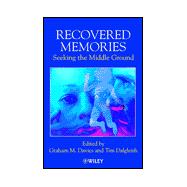
Note: Supplemental materials are not guaranteed with Rental or Used book purchases.
Purchase Benefits
What is included with this book?
Graham Davies is a Professor of Psychology at Leicester University, England, UK. He is a Fellow of the British Psychological Society and a Chartered Forensic Psychologist. His major research interests lie in the eyewitness testimony of children and adults, on which he has published some 100 papers and five books. Graham is regularly asked to provide training and advice to professionals working with child witnesses. He is currently chairing the consortium working with the British Government's Home Office to revise the Memorandum of Good Practice on Video Recorded Interviews with Child Witnesses for Criminal Proceedings (1992). His recent research has included evaluations for the Home Office of the Live Link (1991), videotape facilities for child witnesses (1195), and training procedures for police officers involved in investigative interviewing of children (1997). Graham is the immediate past Chair of the Society of Applied Research in Memory and Cognition (SARMAC), and President-elect of the European Association of Psychology of Law.
Tim Dalgleish is the editor of Recovered Memories: Seeking the Middle Ground, published by Wiley.
|
|||
|
|||
|
|||
| THE SOCIAL ASPECTS. | |||
|
|||
|
|||
|
|||
|
|||
| EVIDENTIAL ASPECTS. | |||
|
|||
|
|||
|
|||
| CLINICAL ASPECTS. | |||
|
|||
|
|||
|
|||
|
|||
| CONCLUDING COMMENTS. | |||
|
|||
|
|||
|
The New copy of this book will include any supplemental materials advertised. Please check the title of the book to determine if it should include any access cards, study guides, lab manuals, CDs, etc.
The Used, Rental and eBook copies of this book are not guaranteed to include any supplemental materials. Typically, only the book itself is included. This is true even if the title states it includes any access cards, study guides, lab manuals, CDs, etc.